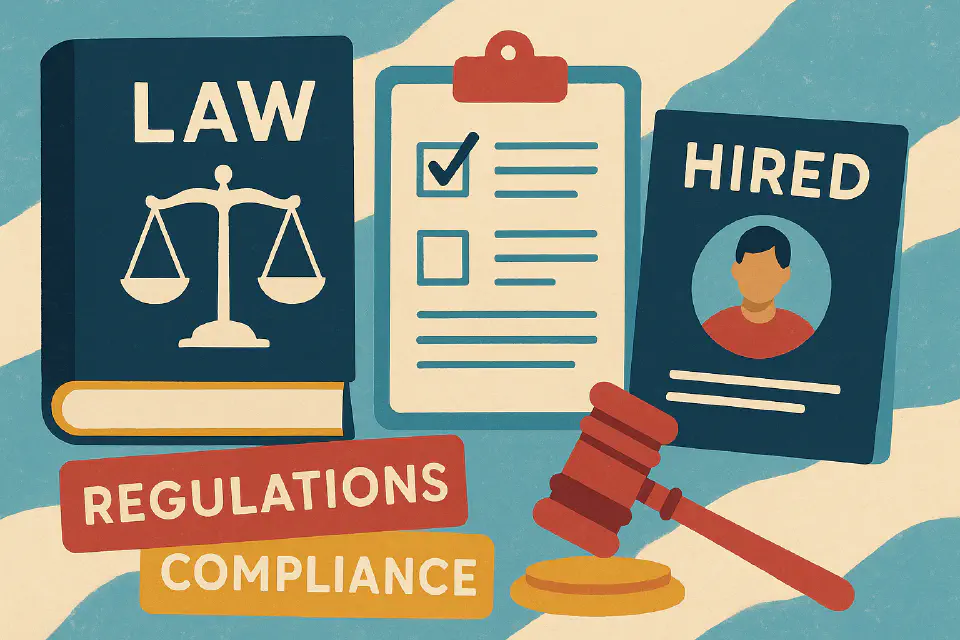
Legal & Compliance Aspects of Hiring
Hiring isn't just about finding the right person — it's also about staying on the right side of the law.
Most hiring mistakes are fixable. Legal ones? Not so much.
HR plays a crucial role in making sure the company not only finds the right people — but hires them legally, fairly, and transparently.
Failure to do so can lead to lawsuits, reputational damage, and loss of trust.
Key Compliance Principles
- Non-discrimination
- Transparency and fairness
- Data privacy and consent
- Equal pay and opportunity
- Documented, defendable decisions
These principles vary by country — but the spirit is universal.
Discrimination in Hiring
Avoid this by:
- Using structured interviews and scorecards
- Removing photos or dates of birth from CVs (if legal in your country)
- Focusing on competencies, not personal background
- Training hiring managers on bias and inclusion
Job Ads and Language
What not to include:
- Age limits (“young, dynamic team”)
- Gendered or coded terms (“aggressive,” “ninja,” “digital native”)
- Physical demands without reason
Write ads that are inclusive, legally accurate, and aligned with your EVP.
Candidate Data and Consent
- Store data securely (in ATS or encrypted systems)
- Get consent for data retention
- Explain how data will be used and for how long
- Provide access or deletion upon request (especially under GDPR/CCPA)
Right to Work & Background Checks
- Verify right to work before contract signing
- Use consistent, legal background check processes
- Know which checks are allowed in your jurisdiction (criminal, credit, etc.)
Recordkeeping
Keep track of:
- Job ads and their versions
- Interview notes and scoring
- Offer letters and candidate communications
- Rejection rationale (in case of dispute)
This isn’t just risk mitigation — it helps improve processes.
International Hiring Considerations
When hiring across borders, consider:
- Local labor laws and contracts
- Tax and payroll compliance
- Permanent establishment risk
- Employment classification (employee vs. contractor)
Use local partners, EORs (Employer of Record), or legal advisors where needed.
Final Word
You don’t need to be a lawyer to hire — but you do need to know when to pause, ask questions, and protect both the candidate and the company.
📌 Next page: Onboarding: From Offer to Integration – How to turn “yes” into engagement, productivity, and retention.